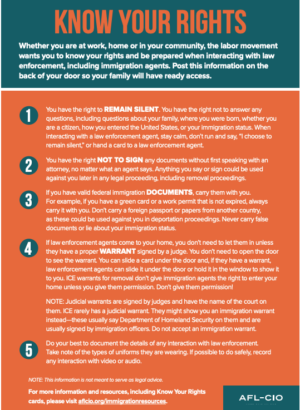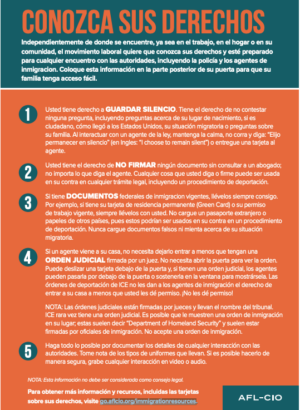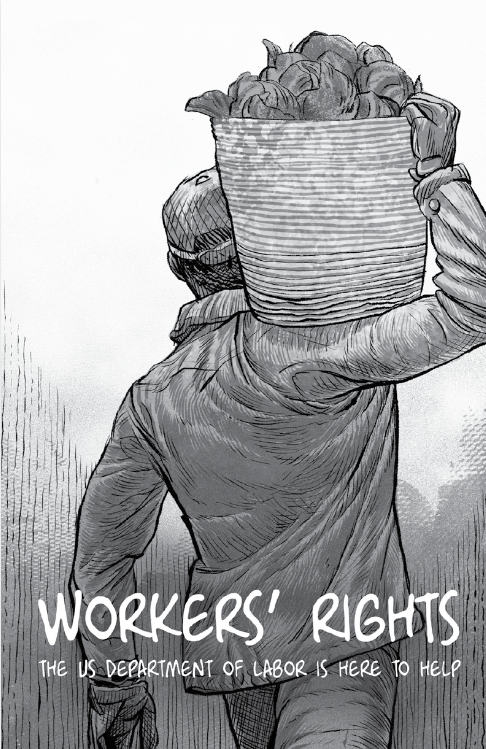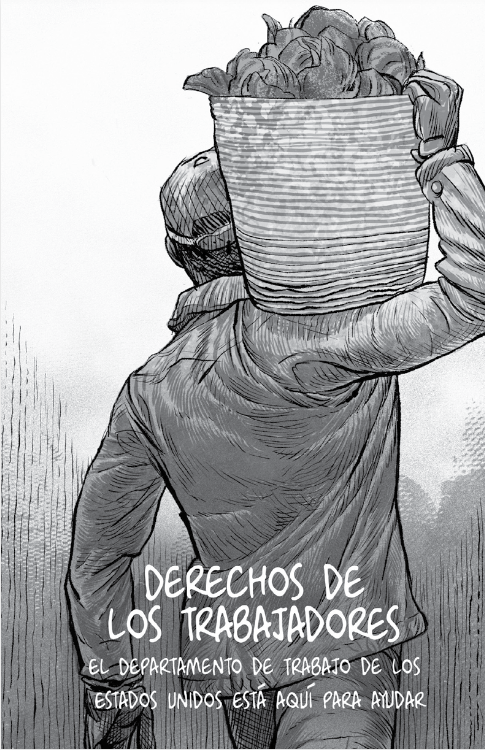Toolkit For Immigrant Farmworkers
We have compiled a list of resources and websites that helps immigrant workers understand their rights when interacting with various law enforcement officials.
In this page you will find:
- a list to know your rights as an immigrant and how to interact with law enforcement,
- the most common immigration actions affecting employers and recommendations for how employers can prepare,
- a guide of what to do if an ICE agent targets you while on the street or knocks on your house,
- a graphic novel to know your rights as an immigrant farmworker,
- what to do if you believe your rights were violated.
La página está disponible en español AQUÍ.
Know Your Rights
As an immigrant and as a worker, you have rights. Here is a list of steps you can follow to be prepared when interacting with law enforcement, including immigration agents.
You can also get the red cards (wallet size) by following this link from the Immigrant Legal Resource Center. These are formatted as standard 3.5” by 2” business cards. Translated versions are designed to support monolingual immigrants translate their rights with immigration officers.
How Employers Can Prepare for ICE Actions
In January 2025, the National Immigration Law Center created a guide for employers. The whole guide can be found here, however, we are highlighting some important suggestions in this toolkit.
Make a Written Response Plan Ahead of Time
Connect with immigration response networks in your area. They provide support with family, legal, financial, and media concerns if immigration agents come to your business.
Train Your Staff to NOT TALK to ICE Agents
Train all workers to NOT interact with ICE agents. If ICE agents have questions or requests, workers
should say nothing, or say, “You are not allowed to enter. Talk to my employer.”
Print Signs and Mark Areas to Protect Private Areas
Clearly mark areas within your organization as “public” and “private.” To show that some areas are private, mark them with a “Private” sign, keep the doors closed or locked, and have a policy that visitors and the public cannot enter those areas without permission. No one can enter a private area of your business without your permission or a judicial warrant.
What to Do If Immigration Comes to Your Workplace
Here is the complete guide from National Employment Law Project (NELP). Below you can find some highlights from the document.
Immigration agents may come to your workplace for a Form I-9 audit; a raid; or to detain specific people. Learn how to recognized the reason:
I-9 Audit
- A Form I-9 audit is when ICE comes to your business to check if you followed the rules for Form I-9.
- Form I-9 confirms a worker’s identity and authorization to work in the U.S.
- Form I-9 is required for all new employees.
- You must keep I-9 forms on file for 3 years after hiring or 1 year after the worker’s last day of work, whichever is later.
- Do not ask a worker to fill out Form I-9 more than once unless their work permit is about to expire or you have another valid, legal reason.
Raid
- ICE agents go to a worksite without warning as part of an investigation into an employer.
- ICE agents are not police officers. But their uniforms may say “Police” or “Federal Agent.” They may carry guns. Sometimes local police officers or agents from other federal agencies go with ICE agents on ICE raids.
To Detain an Specific Worker
- ICE agents may come to your business to try to find a particular person (or people). While they are there, they may try to question, detain, and even arrest other people.
More information for Employers can be found at:
How Immigrants Can Protect Themselves if They Meet and ICE Agent
- What can you do if ICE stops you on the street?
Stay calm. Don’t run, resist, or obstruct the agents. Do not lie or give false documents. Keep your hands where the police can see them. Visit Know Your Rights: Stopped by the Police (ACLU resources) to see different scenarios and how to act.
2. What can you do if ICE is knocking at your door?
Know Your Rights as an Immigrant Farmworker
The U.S. Department of Labor has created MigrantWorker.gov, a website with information and resources for migrant workers.
If you believe your rights were violated
- Write down everything you remember, including officers’ badges and patrol car numbers, which agency the officers were from, and any other details. Get contact information for witnesses.
- If you’re injured, seek medical attention immediately and take photographs of your injuries.
- File a written complaint with the agency’s internal affairs division or civilian complaint board. In most cases, you can file a complaint anonymously if you wish.
NOTE: This information is not meant to serve as legal advice.











